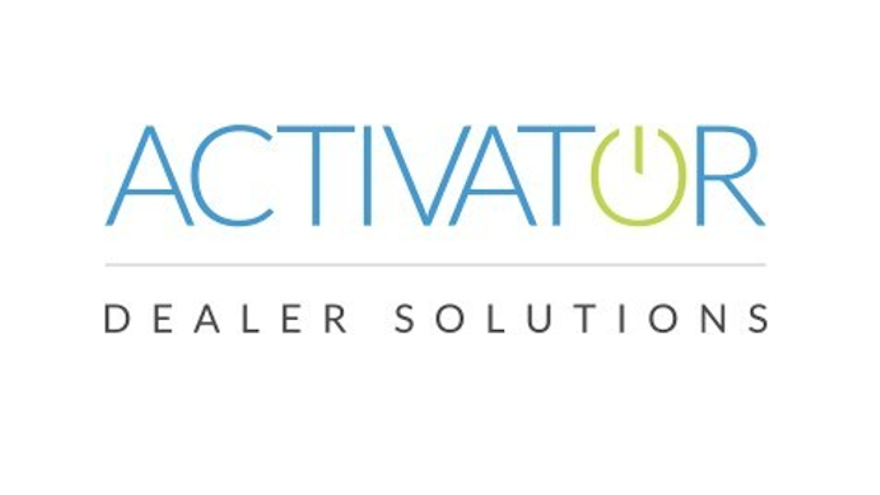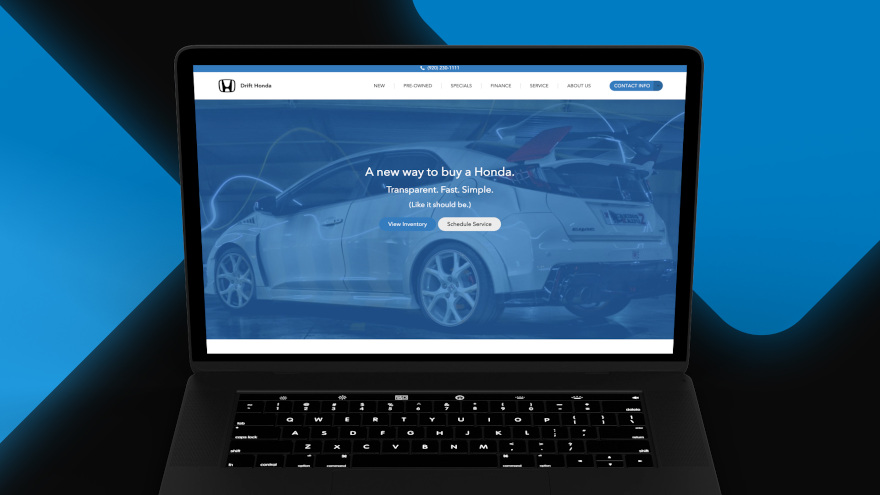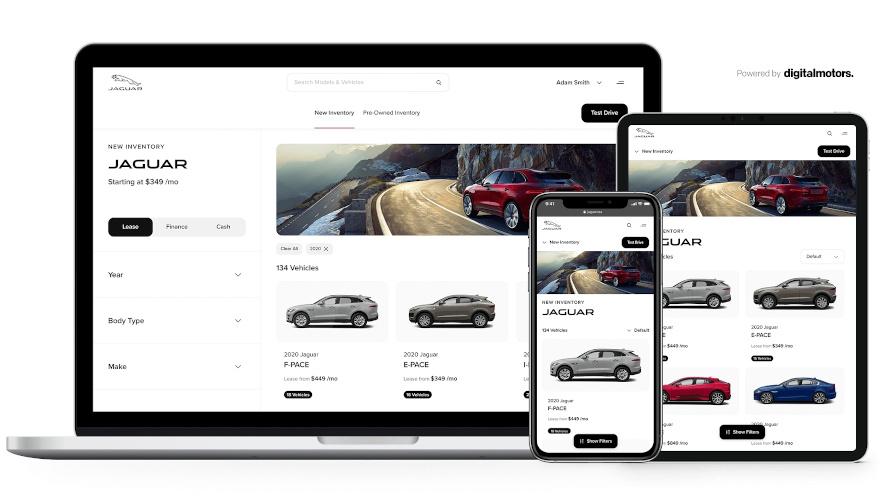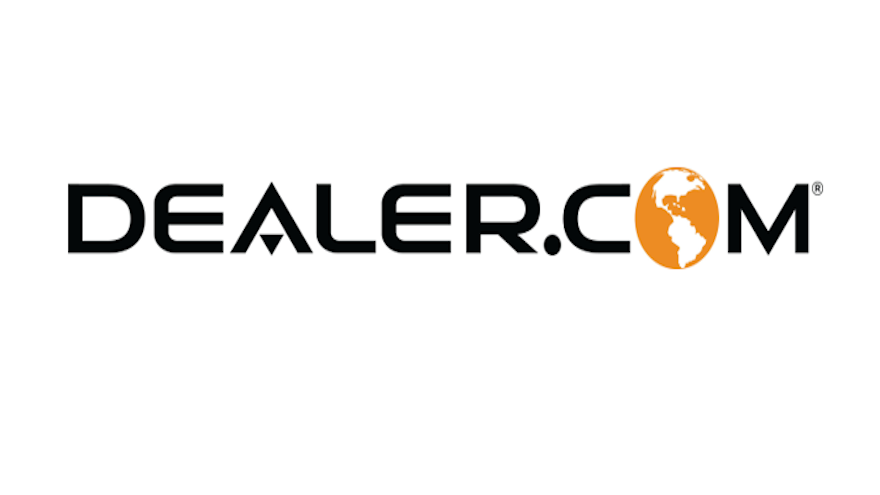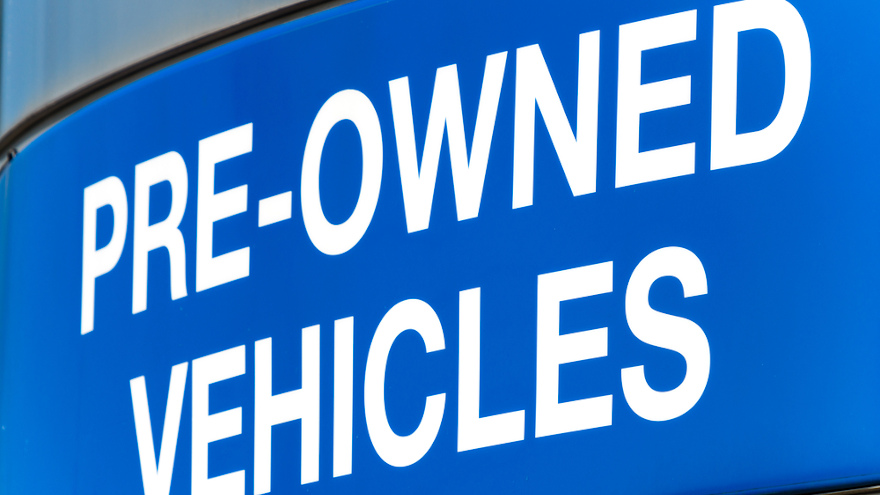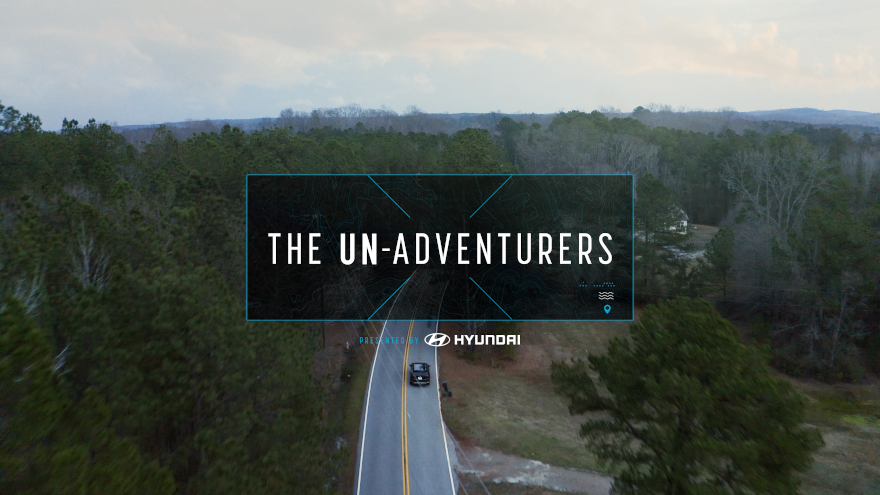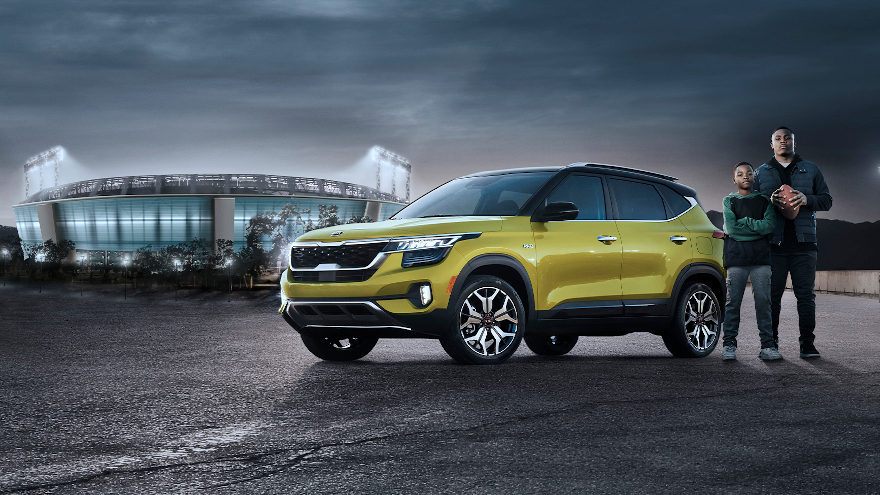Dominion Dealer Solutions unveiled an extensive rebranding and product launch for one of its growing divisions on Wednesday.
The automotive software and services provider announced its award-winning customer intel platform now will be known as Activator and the division now will be named Activator Dealer Solutions.
The company recapped that its Activator platform can empower dealers to flourish in both the showroom and online by tapping into multiple data sources beyond the DMS.
Activator can leverage smart technology to cleanse data, identify targets, reach customers and conquest opportunities that are actively looking to buy or service. With Activator, Dominion Dealer Solutions said dealers can market seamlessly across critical customer touchpoints and positively impact their entire business and revenue using a single solution.
The platform includes core products: ServiceActivator, SalesActivator, the flagship MarketActivator and its relevant add-on modules; BDCActivator, MailActivator and ConquestActivator.
“The inspiring vision for Activator was a result of combining and integrating several key products and features to work together as a complete dealership solution for our customers. Utilizing smart technology to cleanse data, identify targets, automate messaging, and reach existing as well as new customers is what makes the platform unique and valuable for dealers,” Dominion Dealer Solutions president Dan Sykes said.
Dominion recently ended its relationship with CRMSuites to dedicate its resources on completing the Activator Platform. The rebranding initiative coincided with the recent rebranding rollouts of other companies in Dominion Dealer Solutions’s portfolio including Vue DMS, Dealer Specialties, Cross-Sell and DataOne Software.
“Dealers can expect the same level of exceptional support and service currently provided by their Activator Dealer Solutions’ representatives along with ongoing updates and releases of new features and products,” the company said.
More details can be found at www.drivedominion.com.
Continuing a string of recent announcements involving technology providers and franchised dealership websites, DealerSocket on Monday highlighted its enhanced relationship with Honda.
DealerSocket said its DealerFire website platform earned acceptance into the Honda Dealer Website Solutions Certified Program. This certification means DealerSocket’s DealerFire website platform is immediately available to Honda’s approximately 1,000 U.S. dealers.
The company highlighted Monday’s announcement marks the 20th OEM certification for DealerFire, which completed Honda's robust selection process that measured best-in-class services, a national reach and extensive automotive industry expertise.
“Honda was looking for a cutting-edge website and search engine optimization partner, and they found that with DealerFire,” said Eric Giroux, vice president of product management for DealerSocket’s digital solutions.
“Our DealerFire website platform helps dealers have a seamless shopping experience, the fastest mobile websites in the industry, and more control over their virtual showroom versus any other solution on the market today,” Giroux continued in a news release.
DealerSocket insisted that DealerFire websites are capable of mobile load speeds of less than one second on 4G and less than three seconds on 3G networks. The company believes these sites are built on the first platform specifically designed for the automotive retail industry.
“The result is fully responsive websites optimized for maximum visibility right out of the box,” DealerSocket said.
DealerFire websites feature native mobile functionality for an app-like shopping experience designed to efficiently connect car buyers to the inventory they’re looking for with Google-like, search-as-you-type functionality, and a search-by-features module.
For dealers who want more control over their virtual showroom, DealerFire websites contain a robust back-end editing system for do-it-yourself web and landing page creation with no HTML coding required.
The platform also offers more than 100 different inventory and incentives modules users can drag and drop onto a page, as well as a set of optimized webpage templates and container themes through DealerFire’s new Snapshot Studio.
DealerSocket’s announcement arrived after a series of similar developments, including:
Jaguar Land Rover certifies Digital Motors as a preferred platform
Ford, Honda boost relationship with Dealer.com
Dealer eProcess now involved with Honda & Nissan store websites
Honda chooses Dealer Inspire as a preferred website and technology platform provider
A pair of Jaguar Land Rover dealerships each described positive experiences using tools from Digital Motors.
And now more franchised stores for those luxury OEMs can choose to use the same solutions as Digital Motors announced on Thursday that the company has been named a certified vendor for the Jaguar Land Rover Digital Certified Program.
The digital retailing and online vehicle sales platform highlighted that certification makes Digital Motors a top recommended choice for Jaguar Land Rover retailers upgrading their digital presence to include state-of-the-art online stores and in-store desking solutions.
“Digital Motors brings the Land Rover motto of ‘above and beyond’ to life for us on the retail side of things,” said Kirk Cordill, dealer principal of Jaguar Land Rover South Shore located in Crown Point, Ind. “A seamless, touchless digital buying experience from start to finish has never been more important than in today's environment.”
Bill Colgate, general manager of Land Rover Alexandria in Virginia added in a news release, “Digital Motors allows our sales managers to quote reliable monthly payments much earlier in the process. The resulting efficiencies save everybody time — the sales manager, the F&I team, and the customer.”
A dealership’s online store, powered by Digital Motors, can provide a holistic purchase and finance experience which includes the following:
— Vehicle search and payment configurator
— Trade-in valuation
— F&I products
— Lease and finance options
— Home delivery
— Dealer sales portal
“Online sales in combination with the showroom experience are a game changer,” Digital Motors chief executive officer Andy Hinrichs said. “Rather than forcing customers down a prescribed path, we enable a choice of whether and when to transition from the online store to the in-store experience — or vice versa.”
For more details, go to digitalmotors.com.
This week, Dealer.com enhanced its relationships with both Ford and Honda.
The Cox Automotive division first announced it has been selected as a premier partner in the FordDirect Advantage Digital Advertising Program. Then, Dealer.com highlighted that it has been selected as a choice Honda website and digital advertising provider through the Honda Digital Customer Experience.
Fueled by Cox Automotive’s insight into the behaviors of in-market shoppers, key integrations and more than a decade of digital advertising expertise, Dealer.com said it can gives Ford and Lincoln dealers the opportunity to maximize sales through more precise, consistent advertising portfolios aligned to their strategies.
During these unprecedented times, Dealer.com acknowledged market forces are challenging dealers to make more accurate investments. Through Dealer.com’s Digital Advertising program, Ford and Lincoln dealers can enjoy the flexibility and business intelligence needed to reach consumers at all stages of their journey, displaying the right ad to the right shopper and on the right channel at the right time.
Dealer.com insisted its secure advertising solutions are right-sized for every dealer.
“We are seeing record-breaking online traffic and dealers have to spend smarter on every channel to reach consumers wherever they are digitally,” said Wayne Pastore, vice president and general manager of Dealer.com.
“Our customers are facing market uncertainty, changing consumer behaviors and advertising fraud in a very competitive industry,” Pastore continued in a news release. “We have the data and partnerships to drive Ford and Lincoln dealer businesses forward by helping them optimize their advertising portfolio and thrive amid disruption.”
While digital advertising technologies may seem complex, Dealer.com emphasized that its approach begins with supporting individual dealer needs. Leveraging the proprietary Compass Advertising Intelligence engine, a portfolio is built to a dealer’s goals and budget and will flex with a dealer’s changing needs.
Dealer.com’s business intelligence and insights then can help steer Ford and Lincoln dealers toward smarter advertising investments.
Dealer.com highlighted its other advertising solutions key advantages include:
— Leverage shopper data from Autotrader and Kelley Blue Book to help dealers capitalize on existing demand in a dealer’s market.
— Filter inventory for advertising through Paid Search with vAuto data, including Market Day Supply, Price Rank, vRank, and Price to Market, ensuring a dealer spends the right budget on the appropriate vehicles.
— Apply relevant pricing data from Xtime Schedule in paid search ads, driving more applicable ad copy promoting a dealer’s service department.
— Provide turnkey video creation and delivery service for dealers no matter their budget, driving compelling, offer-based video content to high value, high engagement video channels like Facebook and YouTube.
— Detect and combat advertising fraud and ensure dealer investments are protected with a partnership with White Ops and the Trustworthy Accountability Group.
The Dealer.com platform can deploy personalized, integrated ad campaigns that use artificial intelligence and impactful creative to reach prospective vehicle buyers and owners through paid search, display, social media and video channels.
To learn more about Dealer.com advertising, visit https://www.dealer.com/products/advertising.
Honda selects Dealer.com as a certified website provider
As mentioned, Dealer.com announced it has been selected as a choice Honda website and digital advertising provider through the Honda Digital Customer Experience.
Through Dealer.com’s Website Choice program, Honda dealers can receive customized, strategic and secure management of a dealer’s advertising strategy and investment to connect with in-market shoppers across the digital channels that drive performance.
Dealer.com pointed out that it is aiding Honda dealers to deliver a personalized, efficient car shopping experience, which customers expect now more than ever before.
Fueled by user experience research, data science, and exclusive integrations with Cox Automotive brands, Dealer.com websites can deliver a full service, personalized digital storefront experience that can complement a dealer’s individual business goals.
“We are better positioned to help dealers now and invest in the long-term to respond to the new model of car shopping,” Pastore said in another news release.
“Through Honda’s Website Choice Program, we provide all the levers dealers can pull in the digital marketing ecosystem whether it’s on their website, through social channels or video,” he continued. “These tools have impact and will allow dealers to connect in a meaningful way to their customers.”
Through insight into human behavior, supported by data from Cox Automotive brands like Kelley Blue Book, Autotrader, Dealertrack, HomeNet and more, Dealer.com’s Website Choice program offers professional services that address and solve the challenges faced by dealers and their customers.
Participating dealerships will receive a strategic advantage in content creation, SEO ranking, advertising, social strategies and more.
Dealers who would like to learn more can visit https://www.dealer.com/honda/.
Honda and Nissan dealers now can use online tools available from Dealer eProcess.
Dealer eProcess recently announced that it is now part of both the Nissan Certified Website program and the Honda Certified Website and Digital Marketing programs. The company said Honda and Nissan dealers now have the ability to enjoy all the latest tools and features that Dealer eProcess has to offer and stay within their OEM program guidelines.
As part of the program, Dealer eProcess dealers can choose from unique Nissan website designs that are designed to be fully responsive and ADA compliant in addition to featuring SSL security. Spanish websites are also available to reach customers in the language they are most comfortable with.
The company emphasized there are high-converting elements within each section of the websites, from the user-focused SRP (search results page) and advanced VDP (vehicle details page) to voice search and several different chat and bot options. Dealers will be able to target their unique set of customers with SEO packages and encourage online shopping with SARA, a comprehensive digital retailing tool.
Furthermore, Dealer eProcess dealers that are Honda franchises can choose from unique Honda website designs that also are designed to be fully responsive and ADA compliant in addition to featuring SSL security. Like with Nissan sites, Dealer eProcess said there are high-converting elements within each section of the Honda websites, from the user-focused SRP (search results page) and advanced VDP (vehicle details page) to several different chat options.
Dealers will be able to target their unique set of customers with SEO packages and encourage online shopping with SPARC (Syndicated Payment and Rate Customizer), a tool that provides data-driven payments. Honda dealers can also utilize Dealer eProcess’ robust dashboard that includes in-depth reporting, lead information, website management, and customization, all in a user-friendly format.
With Honda Certified Digital marketing, Dealer eProcess said capturing customers ready to take home a new vehicle, research a used vehicle, or schedule a service can be done in numerous ways. Dealer eProcess digital marketing includes dynamic inventory based search marketing, market protection with geographical/local campaigns and dynamic inventory based remarketing.
The company added social media options cover Waze, Facebook, and YouTube, along with Google Posts to increase both branding and visibility. Data transparency with tools such as CARoi are key elements that are designed to ensure dealers can monitor progress with all of their marketing campaigns and overall website strategies.
Dealer eProcess’ robust dashboard includes in-depth reporting, lead information, website management, and customization, all in a user-friendly format. With InSites, analyzing all websites stats can be done in one place with month-by-month or year-over-year breakdowns. Dealers will receive a monthly report with key statistic summaries in a print-ready format. The dashboard also allows dealers to build custom pages, update the menu, and edit inventory. The Dealer eProcess dashboard is designed to help dealers make the most of their website and additional tools.
Nissan Certified Websites options and Honda Certified Website and Digital Marketing choices through Dealer eProcess are available immediately.
For a full list of features and package options, visit the program page on the Dealer eProcess website. Dealers also can schedule a demo or contact the DEP sales team at (877) 551-2555.
Sincro wants potential vehicle buyers who are spending time on Facebook wants them to be doing more than liking pictures of friends’ pets or commenting about how the family is finding new ways for recreation at home.
The Ansira company created from the acquisition of the CDK Global Digital Marketing Business this spring announced a partnership with Facebook on Monday that introduces Sincro as an automotive vendor on Facebook’s partner integrations platform to offer vehicle catalogs to dealers.
As a result, dealers are now able to request a vehicle catalog from Sincro directly from their Facebook Business Manager, streamlining the process of creating Automotive Inventory Ads.
“We are excited to partner with a company like Sincro, that has deep roots in digital and automotive, and is focused on delivering seamless ad tech solutions to dealers advertising on Facebook,” said Bob Lanham, head of automotive retail at Facebook.
Automotive Inventory Ads are a type of dynamic ad optimized for shoppers who are in market for a vehicle. To use them, dealers must upload their catalog of vehicle inventory and include relevant details such as make, model and year. The details allow Facebook to showcase their most compelling inventory and features to those in-market shoppers, but the manual process can be time-consuming.
Sincro explained the vehicle catalog delivered by the company will automatically upload and store all of the dealer’s unique inventory data and will refresh daily within Automotive Inventory Ads.
Sincro said in a news release that dealers can expect this integration to greatly simplify inventory feed creation, vehicle catalog set-up and pixel placement, reducing the overall complexity of activating Automotive Inventory Ads.
“This partnership with Facebook is a reflection of our ongoing commitment to tech innovation in the automotive digital space,” Sincro President Jen Cole said. “Delivering turnkey ad tech solutions that create efficiencies and allow dealers to focus on their business is just one of the important ways we bring value to our customers.”
This Sincro Vehicle Catalog tool is live and dealers can use it to sync their inventory on Facebook by logging in to their Facebook Business Manager and selecting Sincro from partner integrations under the measure and report category.
Monday’s development arrived about three months after CDK Global Digital Marketing Business was rebranded as Sincro. Ansira’s agreement to acquire the company was signed on Feb. 18 and included all assets, including all advertising solutions and website services.
“The completion of the acquisition of Sincro further amplifies the breadth and depth of Ansira's local marketing solutions, which is especially important today given the unprecedented change happening at the local level,” Ansira chief executive officer Jay Dettling said after the acquisition closed on April 22.
“Sincro’s tagline is ‘local marketing, synchronized.’ That really resonates with me as we think about how we will work together to help support our clients,” Dettling continued. “We look forward to a bright future for Sincro as they continue on their accelerated path of product development and services innovation as an Ansira company, sharing our passion for digital marketing technology solutions and services.”
Sincro has a team of more than 175 representatives in the field to call on dealers in the market, dedicated to responsiveness and a consistent quality of service. Additionally, the company’s footprint in North America and India is focused on service and support around the clock, and expands Ansira’s global presence.
Ansira is backed by Advent International, one of the largest and most experienced global private equity investors, with deep expertise in the business and financial services sector.
“Our top priority today is to help our customers navigate the impacts of COVID-19 and that immediate focus does not change,” Sincro’s Cole added at the time of the closing. “And we look forward to a strong future together with Ansira, partnering with our customers to deliver in-the-moment marketing that helps dealers maximize lifetime customer value, drive efficiency and performance across digital channels, and promote their brands, their way in their local markets.”
"The Un-Adventurers" is a television series celebrating real people who leave their home state for the first time ever to embark on “journeys they’ve always dreamed of.”
Creation of the four-part long-form television series took place through a partnership between Hyundai Motor America and Tastemade, which is a media company serving viewers on all major digital, mobile and streaming television platforms. The company creates video content and original programming in the categories of food, travel, and home & design.
In the series, which will debut on June 3 across Tastemade's streaming network, the host of the show drives participants “on the road to personal growth and adventure” with a road trip in one of Hyundai's SUVs, including the Santa Fe, Tucson, Kona, and flagship Palisade.
"The Un-Adventurers" was developed in collaboration with Hyundai’s advertising agency, INNOCEAN USA, and its media agency, Canvas Worldwide.
"The Un-Adventurers" features stories about characters such as Porsha, a single mom from Douglasville, Ga.
Porsha cleans planes for a living, but she has never traveled by plane herself.
Viewers of the first episode will see her journey from her hometown to Florida. Once there, she dips her feet into the ocean for the first time.
Father and aspiring stand-up comedian, Jay, is the subject of the second episode, and he builds up the nerve to get out of his state and then perform comedy in front of a live audience, including his family.
Tastemade and Hyundai Motor America say more than 35 million Americans have never left the state where they were born. So Hyundai went on a mission to take some of them across state lines for the first time.
The company said it did that to show the subjects the power of travel and discovery beyond their comfort zone.
Each participant has faced personal challenges that made travel unachievable. A friend or family member nominates the participant to finally receive “an opportunity for self-discovery and exploration.”
Commentator and producer, Selema "Sal" Masekela hosts the show, and each episode will feature the subject’s personal stories and explore why he or she has never left his or her hometown or state.
Masekela will then drive them on that “road to personal growth and adventure” in a Hyundai SUV.
“We are always thinking about our drivers and the different types of journeys they are taking in a Hyundai, from the daily work commute to life-changing adventures,” Hyundai Motor America chief marketing officer Angela Zepeda said in a news release.
Zepeda continued, “While some travel road trips may be on pause given our current situation, we are excited to partner with Tastemade to connect viewers to the personal and emotional journeys of these ‘Un-Adventurers,’ and to showcase the power of the automobile in experiencing what the world has to offer.
This is the second collaboration between Hyundai and Tastemade. As part of Hyundai's broader college football marketing campaign, the two companies joined to produce three seasons of “The Grill Iron” in 2014, 2015, and 2016.
"The Un-Adventurers" series will air across Tastemade’s streaming network. The network is available on platforms such as YouTube TV, Samsung TV Plus, VIZIO SmartCast TVs, The Roku Channel, and Comcast Xfinity X1. The first episode will debut on June 3 and the second on June 10.
The final two episodes will feature two additional “un-adventurers” who have been chosen. Those episodes will be shot and completed once conditions are deemed safe.
“We're excited to be partnering with like-minded innovators such as Hyundai and INNOCEAN on this remarkable series that allows us all to take a detour from our daily routines and into a world of discovery,” said Tastemade head of sales and brand partnerships Jeff Imberman.
Imberman continued, “During this unprecedented time, the Tastemade audience is looking for unique ways to stay engaged, and The Un-Adventurers offers viewers the chance to virtually transport to various cities nationwide while establishing an emotional connection with our featured individuals.”
“We came across the surprising statistic that 35 million people have never left the state they were born in,” said INNOCEAN USA executive creative director Barney Goldberg.
Goldberg continued, “And then (we) thought who better than Hyundai to take them across state lines for the first time to show them the power of travel.”
"When we were initially approached with this adventure series, we knew it required just the right partner to bring the idea to life with an inspirational twist," said Canvas Worldwide vice president, group director of brand strategy Jason Croddy.
Croddy continued, “With a proven track record of compelling storytelling, Tastemade was the ideal platform for the series given their unique strength in the streaming space, their ability to share stories across different media channels and platforms, and being a trusted voice amongst millennial audiences.”
The rise of e-commerce has enabled companies to better understand consumer behaviors in the digital age and reevaluate their marketing spend to provide a more personalized shopping experience. This situation is illustrated in the following example.
Consumer No. 1 opens website A and the products advertised to them are not of interest, so they exit within seconds and move on to the next site on their list. Moments later, that same consumer sees the products from the first website advertised to them, even though their visit was not of high quality.
Consumer No. 2 opens the same website A, but the products shown to them are aligned with their current needs. This consumer scrolls through products for a few minutes, adds some to their cart and moves on to read their daily dose of news. Consumer two also will see advertised content on their next website, remember that their cart is still full and return to the website to continue shopping.
So, if you had to allocate your advertising spend, would you rather it be geared toward consumer No. 1 or consumer No. 2? The same analogy can be applied to advertising digital inventory at your dealership. If dealers are not giving consumers a personalized and relevant inventory selection, they risk consumers leaving their website in favor of the dealership next door. By combining consumer data with the right digital strategy, dealerships can drive high-quality visits to their website.
A two-fold data-driven approach can be key to piquing consumer interest. The first step is understanding the “when.” When is the consumer in-market and showing buying signals online? Knowing the when allows dealers to implement an efficient strategy where they are targeting in-market shoppers and minimizing wasted advertising dollars. The second step is leveraging current consumer needs and personalizing the shopping experience. For example, a dealer targeting a growing family with their latest three-row vehicle. While it is becoming more difficult for dealers to create a complete online customer profile due to new privacy protection laws and data sets through multiple sites, if dealers don’t have the proper data needed to target in-market shoppers, they can miss out on profit potential.
To implement an accurate data-driven strategy that amplifies consumer reach, dealers need to pinpoint which digital marketing investments drive consumer sales activities. Through an easily operated, up-to-the-minute, centralized dashboard, dealers can receive actionable insights toward consumer preferences, informed data surrounding advertising spend plans, and intuitive management tools that drive better quality website visits and consumer engagement.
Providing actionable insights
Consumers are quick to leave website pages, taking only seconds to decide if they continue to scroll through inventory or exit for their next destination. For car shoppers, low-quality visitors do not look at vehicle deal pages, submit forms of save vehicles to view later. Dealers need to figure out what drives quality visits to their websites and how to best convert those leads into customers.
Third-party vendors can make it easier for dealers to evaluate their online presence in real-time as well as track the shopper’s journey from online to in-store. Through easy-to-understand visuals and cross-media analysis, dealers can identify which digital marketing products are influencing consumer behaviors. This enables dealers to provide a highly personalized shopping experience by tailoring their approach to meet consumer demands. Dealers also can detect consumer purchase intent, driving stronger leads to showroom floors.
Informed advertising plans
As digital retailing becomes commonplace in the auto industry, dealers should maximize marketing spend and optimize targeting to maintain a competitive edge. Instead of focusing on the quantity of visits to their sites, dealers need to better understand what forms of advertising lead to quality visits.
An in-depth analysis that includes dealer-specific performance recommendations, such as overall spend and investments per channel, can be instrumental to delivering a data-driven approach to consumers. With this data, dealers can adjust marketing plans as needed based on monthly priorities. By properly allocating media dollars, dealers can influence shoppers at every stage of the buying process through online marketplace sites, paid search, display, Facebook and video advertising. Being able to review campaign performance metrics in real-time and reconfigure to increase spend on a specific channel will drive higher-quality traffic to dealership websites.
Intuitive management tools
Leveraging information compiled in their systems, dealers can better target in-market shoppers and manage their leads with one website application. Promoting the dealership brand, merchandising inventory, creating offers and promoting the dealership across channels is much easier when you can holistically view your marketing performance and spend in one location. This allows you to connect the dots, and gauge where a consumer is in the car-shopping process by monitoring online behavior and engagement to indicate purchase intent.
While many dealers want to focus on increasing profits and selling vehicles, they should focus on the data and strategy that goes into attracting consumers to their dealership lots. Dealers edge out competition by analyzing their marketing spend and reallocating funds to target the right shoppers who will drive higher conversion – and eventually turn into hot leads.
Kevin LeSage is the director of digital marketing at Autotrader.
Dean Evans says that compared to where users spend their time, television advertising is dated and inefficient.
Evans is executive vice president of CARS, which operates brands including Cars.com, Dealer Inspire and DealerRater.
“Automotive advertisers relying on linear TV to generate traffic are wasting money by directing 95% of their spend towards those not in the market to buy a car, and therefore not getting the returns they deserve,” Evans said.
That is one of the reasons automotive digital solutions provider Cars.com has launched FUEL In-Market Video, or FUEL IMV, which Evans describes as “the antidote to smarter automotive marketing that could eliminate the massive waste while yielding the same or better results.”
Cars.com describes FUEL IMV as a digital video product focused on what Zenith Media says is the $9.7 billion that the U.S. auto market spends on TV advertising.
Cars.com says that with the new product, dealers, original equipment manufacturers and regional/dealer ad associations can pinpoint serious ready-to-buy shoppers and fight the high costs and inefficiencies of selling in what it describes as a crowded, fragmented media industry.
Also sourcing Zenith Media, Cars.com says more than 50% of U.S. automotive advertising spending goes to traditional, untargeted TV, which is much higher than the global industry average across all categories.
And that spending takes place while consumers spend more time on mobile devices than on traditional TV, according to a Los Angeles Times article. That article says those consumers are accessing content from various social platforms and streaming apps.
Also, Cars.com average internal traffic data from 2019 shows that fewer than 5 percent of households in a local market are serious about buying a new or used vehicle. That means finding them requires more data-driven science to succeed.
CARS chief executive officer Alex Vetter said the opportunity to use data and science to drive sales more efficiently has arrived.
“We are in an era of opportunity where dealers and OEMs can take advantage of the most pure, comprehensive in-market car-shopper data, intelligent solutions and advanced technology platforms to drive some of the most efficient and effective advertising this industry has ever seen,” Vetter said.
He continued, “CARS is committed to delivering connected technology solutions like FUEL IMV to attack inefficiencies for automotive advertisers and fuel sales and dealer profits.”
With FUEL IMV and using Cars.com's 23 million monthly shoppers, 82% who are in-market to buy, OEMs and dealers can harness what Cars.com describes as “the untapped power of digital video.” The company sources Borrell's 2018 Outlook in predicting an increase in digital video at a rate of 19% to $4.8 billion in the automotive space by 2023.
Cars.com mentioned a recent FUEL IMV pilot that showed positive outcomes for an Atlanta-based Hyundai dealership. The dealership during the test experience a 153% increase in new users on its website, a 31% increase in organic traffic and a 180% increase in referral traffic from social media as a result of the new digital video campaign.
Key features of FUEL IMV include:
— In-market audience data that includes access to Cars.com’s audience.
— Interactive channels that provide shoppers the ability to click for more information or connect online with dealerships. Cars.com said traditional TV can’t do that.
— Competitive advantage: Dealers can claim their preferred ZIP codes. That provide them access to data about households currently shopping for vehicles.
— Custom campaign builder: That brings dealers access to a library of creative ad campaigns, with the ability to customize them to a dealer’s branding and special offers.
— Artificial intelligence: That includes built-in AI to respond to viewers, collect customer information and provide personalized offers.
— Integration: That includes the ability to sync across all CARS properties, delivering what the company describes as a connected experience across a dealership’s entire digital portfolio to guide shoppers through the buying process.
— Connected reporting: Metrics flow directly into the new Dealer Inspire reporting platform PRIZM, alowing dealers to see the effectiveness of each advertising dollar spent.
Hear more from Evans on FUEL In-Market Video, the state of automotive advertising today and more in this podcast, recorded at NADA Show 2020
With many Super Bowl television viewers likely watching Sunday night’s game with a smartphone in hand, Autotrader, Cars.com, Edmunds and Kelley Blue Book tabulated which automakers generated the most buzz with their TV commercials to their respective websites.
Analysts from the quartet of vehicle-listing sites reviewed site traffic associated with the OEMs that shelled out millions of dollars for airtime, including Porsche, Hyundai, Audi, Kia, GMC, Jeep, Genesis and Toyota. Turns out, these brands generated varying degrees of attention, depending on the site.
Let’s begin the Big Game rundown with Cars.com
Cars.com indicated results generated an average 1,646% lift to pages of the specific car makes and models, as well as an average 554% lift in automakers pages on the digital marketplace.
“The Big Game produces big responses on Cars.com,” said Brooke Skinner Ricketts, chief experience officer for Cars.com, in a news release. “Watching the game isn’t a static experience as millions of viewers now use multiple screens to experience the spectacle, which makes it possible for them to react to a marketing message immediately.
“Shoppers flock to Cars.com after automaker commercials to explore vehicles, read reviews and find a local dealer in their area. Were a trusted source of information in the car-shopping experience,” Skinner Ricketts continued in a news release.
Cars.com analyzed site traffic to advertised car model pages during a 16-minute window for each televised ad — eight minutes before each spot aired and again eight minutes after. Analysts discovered Genesis posted an astonishing 5,530% increase to its pages.
Additionally, each of the other brands pages increased, as well:
● Porsche: up 1,072%
● Hyundai: up 961%
● Audi: up 639%
● Kia: up 553%
● Jeep: up 336%
● Toyota: up 238%
Cars.com mentioned GMC teased the much-anticipated new Hummer EV, which is not yet available for purchase, but the company’s Super Bowl commercial did generate interest in previously released Hummer models. Cars.com reported a lift of 479% to used Hummer pages and a 26% jump to new GMC pages on Cars.com in the 8 minutes after the Hummer EV commercial aired.
Analysis from Edmunds
Edmunds analysts explained that they tracked traffic to brand and model pages on both its desktop and mobile sites during the Super Bowl to see which automotive ads were most successful in driving immediate shopper interest. They indicated the percentage lifts they found are compared to average Sunday traffic levels on Edmunds.
Edmunds indicated Kia’s “Tough Never Quits” ad promoting the Seltos proved to be the most successful ad of the night, driving traffic up by 147,969% to its pages on Edmunds during the game.
Analysts found Porsche’s “The Chase” promoting the Taycan drove traffic up by 40,830% during the game, and traffic to the Audi e-tron was up by 24,122% thanks to the automakers “Let it Go” advertisement.
On the brand side, Edmunds noticed Genesis garnered the most interest with traffic up by 182,343% during the game as a result of its “Going Away Party” advertisement. GMC came in second, generating a 9,408% lift in traffic during the game thanks to the automakers “First Ever GMC Hummer EV” advertisement.
“Ads featuring new, attractive vehicles or lesser-known brands generally tend to pique the most curiosity from car shoppers during the big game, and this year is no different,” Edmunds executive director of insights Jessica Caldwell said in a news release.
“It’s encouraging to see more automaker commercials during the big game this year than we have in years past: the fact that there are so many exciting and innovative new products hitting the market is a great sign of what’s to come for the industry in 2020 and beyond,” Caldwell continued.
Edmunds data also showed that the Jeep Gladiator and Hyundai Sonata produced significant lifts in traffic on Edmunds as a result of Jeep’s “Groundhog Day” and Hyundai’s “Smaht Pahk” advertisements during the game, generating a 9,467% and a 6,982% lift, respectively.
“The Gladiator and Sonata have both been on the market, so while they didn’t generate quite the same interest as newer models, the fact that they still drove pretty decent spikes in traffic on Edmunds are a testament to the humor and creativity of the advertisements,” Caldwell said.
“In the case of the Sonata, Hyundai made a particularly smart move in highlighting a lesser-known, flashy autonomous feature like Smart Park to grab shopper’s attention,” she continued.
Recap from Cox Automotive portfolio
Representatives for Cox Automotive also shared analysis on the impact of activity from their family of websites in connection with Super Bowl TV advertisement.
After automakers’ ads ran, analysts noticed Dealer.com saw a dramatic lift in website traffic with total visits increasing by 647%.
On KBB.com, analysts indicated the Kia Seltos saw the largest increase in traffic for models advertised with a 2,340% increase while Genesis received the largest brand lift with a 920% increase in traffic.
However, Autotrader saw the largest percent lift in traffic for the Porsche Taycan (874%) and a 410% lift in traffic for Genesis after the ad ran as well.
While Genesis, Kia Seltos and Porsche Taycan won for the biggest lift in traffic, Toyota took the top spot in the total model and brand traffic volume after the big game, driven by their Toyota Highlander Heroes ad, according to Kelley Blue Book.
Additionally, Cox Automotive pointed out the surge in OEM activities with eight brands represented as analysts said the amount was the highest number since 2017.
Across all advertisers, Kelley Blue Book computed traffic gains for the advertised models were at least more than four times than the average traffic levels of the comparison period.
“Automakers still see television, the NFL and the Super Bowl audience as important given the cost of producing these ads as the cost to place them, Autotrader executive editor Brian Moody said in a relase.
“The Jeep, Hyundai and Audi ads may indicate that the focal point is shifting to Gen Xers given the presence of a Game of Thrones actor, an actor for The Office and a beloved 80s movie. Based on this, there still seems to be plenty of lift in selling actual cars, television as a viable mass communication outlet and the growing depth of Gen X’s pockets,” Moody went on to say.

